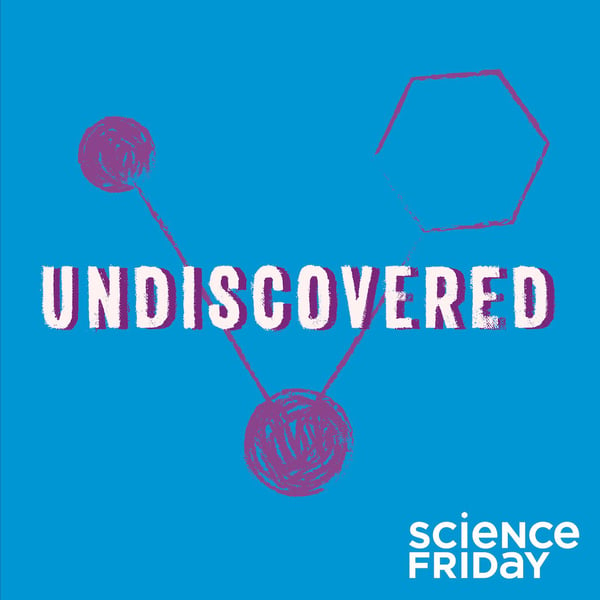Sick and Tired
Undiscovered
Science Friday and WNYC Studios
4.6 • 768 Ratings
🗓️ 30 May 2017
⏱️ 30 minutes
🧾️ Download transcript
Summary
Transcript
Click on a timestamp to play from that location
| 0:00.0 | Listener supported WNYC Studios. |
| 0:09.5 | I'm Annie and I'm Ella, and this is Undiscovered, a podcast about the backstories of science. |
| 0:17.7 | A quick note to our listeners, in a couple places in this episode, there is some language that you would not hear on the radio. |
| 0:24.6 | Okay, on with our story. |
| 0:26.5 | It's February 2011 when Julie Raymeyer reads something that upsets her. |
| 0:30.7 | I am lying in bed reading the New York Times on my cell phone because I'm too weak to sit up to use my computer. |
| 0:39.6 | And I see this headline that says, psychotherapy eases chronic fatigue syndrome, study says. |
| 0:46.2 | A new study had just come out that found talk therapy could help people with chronic fatigue syndrome. |
| 0:51.2 | And I thought, whoa, psychotherapy. |
| 0:58.4 | Okay. Julie had been diagnosed with chronic fatigue syndrome five years earlier. And she had this experience where people would tell |
| 1:02.9 | her it's all in your head. Yeah. So I have to admit that when I started working on this episode, |
| 1:08.5 | I really didn't know much about chronic fatigue syndrome. |
| 1:11.3 | I thought it just meant people were really tired. |
| 1:14.2 | Like everyone's really tired. |
| 1:15.4 | Exactly. |
| 1:16.0 | But what Julie describes is much worse. |
| 1:18.9 | On bad days, I couldn't get up and down the stairs. |
| 1:22.4 | I had to do it on my butt. |
| 1:24.9 | And I didn't have a car. |
| 1:26.4 | So, you know, the metro was half mile away. I couldn't get |
| 1:30.3 | there. I couldn't get groceries. I couldn't get to work. I couldn't do anything. The CDC calls |
| 1:34.4 | chronic fatigue syndrome a debilitating disorder. It says you can get muscle pain and memory problems, |
... |
Please login to see the full transcript.
Disclaimer: The podcast and artwork embedded on this page are from Science Friday and WNYC Studios, and are the property of its owner and not affiliated with or endorsed by Tapesearch.
Generated transcripts are the property of Science Friday and WNYC Studios and are distributed freely under the Fair Use doctrine. Transcripts generated by Tapesearch are not guaranteed to be accurate.
Copyright © Tapesearch 2025.

